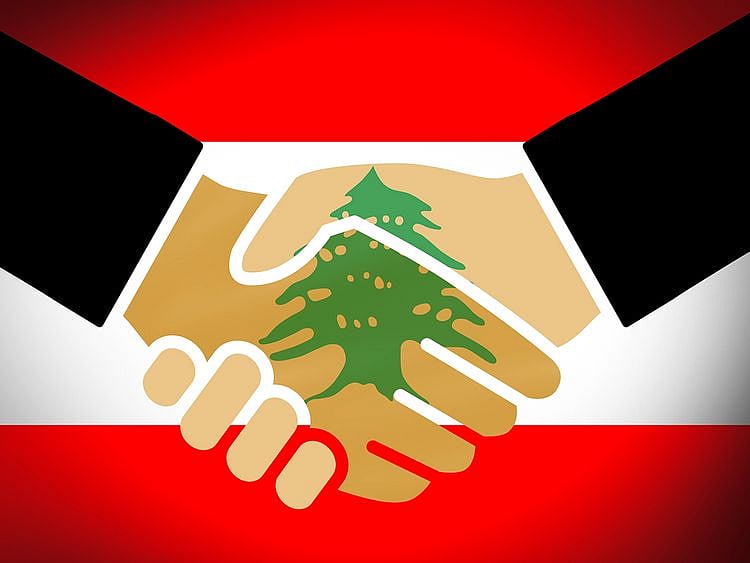Will Lebanon have a new president by the middle of June?
There may be a ray of hope in the new political alliances and a changing landscape

Six months into Lebanon’s presidential vacuum the country might be in for a breakthrough.
The presidential seat at Baabda Palace has been vacant since October. Earlier this month, United States urged Lebanese lawmakers to agree on consensus candidate: “Lebanon’s leaders must not put their personal interests and ambitious above the interest of their country and people.” That of course is easier said than done although it is more reachable today than at any time any time before thanks to what seems to be a regional détente triggered by the Saudi-Iranian rapprochement.
The most serious contender for now is Suleiman Frangieh, scion of a leading Maronite family whose grandfather and namesake was president at the start of the country’s civil war in 1975. His great-uncle Hamid had also been presidential candidate back in 1952.
Frangieh is backed fully by two Shiite parties, Hezbollah and Amal, yet vetoed — until now- by mainstream Christian parties including the Lebanese Forces (LF) of Samir Gagegea, the Lebanese Phalange of the Gemayel family, and the Free Patriotic Movement (FPM) of ex-president Michel Aoun and his ambitious son-in-law, Gibran Bassil.
Gagegea’s veto stems from his desire to prevent a Hezbollah ally from reaching Baabda Palace. Gibran Bassil, however, wants the post for himself with no luck.
The French position
The French have floated a proposal saying that they would support Frangieh for president on the condition that he appoints celebrated judge and former AUB professor Nawaf Salam as premier. This would be similar to a swap agreement reached between Saad al-Hariri and Michel Aoun back in 2016, where in exchange for naming Hariri premier, the former agreed to accept Aoun as president.
At the time, this formula pleased both the pro-Iran and pro-Western camps in Lebanon. The French feel that they can pull that off again in 2023, although Hezbollah remains opposed to such a formula. Current prime minister Najib Mikati also objects, since he is under the impression that in return for supporting Frangieh for president, he would get to stay at his job as premier, not in caretaker mode as he is today but with full powers and a parliamentary mandate.
With France’s proposal on the back burner, many are turning to Saudi Arabia which to date, had opposed Frangieh. That might now change with the Saudi-Iranian rapprochement and on 10 May 2023, Frangieh was invited to the home of the Saudi ambassador to Beirut, Walid Al Boukhari.
Although the Saudis remain impartial, many saw this meeting as a signal that Riyadh no longer vetoes Frangieh for president.
A soft landing for Gagegea and Bassil
Samir Gagegea is now saying that he will nominate someone to challenge Frangieh for office, then respect whatever comes out of the voting session. This a far cry from Gegegea’s earlier position; that he would never accept Frangieh for president no matter what the circumstances.
Gagegea and his team are toying with the idea of nominating ex-minister Jihad Azour to challenge Frangieh in the next voting session, so that he doesn’t win unopposed. At a bare minimum, they will maintain the stance of not voting for Frangieh.
Azour is a respected technocrat who currently heads the Middle East Department at the International Monetary Fund (IMF) but for him to become president, he would need 65 out of 128 votes in the Chamber of Deputies, which the Lebanese Forces cannot muster. Presently, they command 18 seats in parliament, followed by 16 for the FPM, 16 for independent Christians, and 4 for the Lebanese Phalange.
Realising that he may not be able it to the presidency, Gibran Bassil will also drop its veto of Joseph Aoun, for the exact same purposes as Gegegea. His chances are also slim, however, because his nomination would require him stepping down from army command and then coming up with a constitutional amendment through parliament.
15 June 2023: Lebanon’s cut-off date
According to sources who spoke to Gulf News, the next voting session will take place anytime between now and 15 June 2023. There are 64 Christian seats in parliament but only six are 100% guaranteed for Frangieh. The rest need bargaining. What’s also secured for Frangieh are 27 Shiite votes and 11 Sunni votes from the bloc of Prime Minister Mikati and Sunnis affiliated with Hezbollah.
That’s not enough to make him president, however, and Hezbollah would need to attract the votes of independent Christians or hope that six pro-Saudi MPs and 10 former Hariri proteges would take their que from the Saudi-Iranian rapprochement and vote for Frangieh.
If Frangieh can get both (a total of 16) topped with his own bloc (2) that of Hezbollah and Amal (27) and Najib Mikati (11), that adds up to 56 — nine votes short of getting the required number of votes to become president. Those nine votes will have to come from one of the major Christian parties that had previously said no to Frangieh, or from independent Christians who hold 16 seats in the Chamber of Deputies.
— Sami Moubayed is a historian and former Carnegie scholar. He is also author of Under the Black Flag: At the frontier of the New Jihad.
Sign up for the Daily Briefing
Get the latest news and updates straight to your inbox
Network Links
GN StoreDownload our app
© Al Nisr Publishing LLC 2025. All rights reserved.